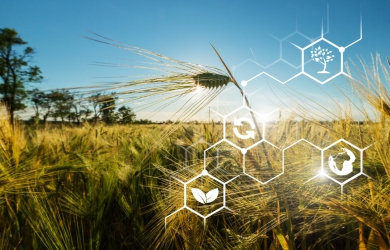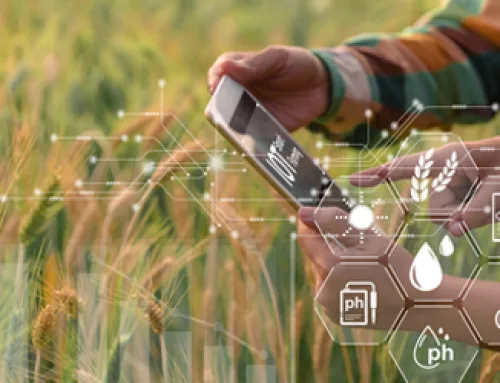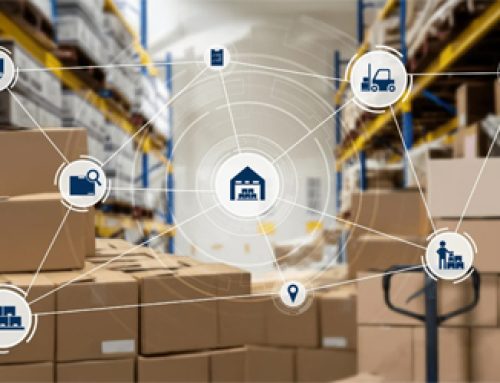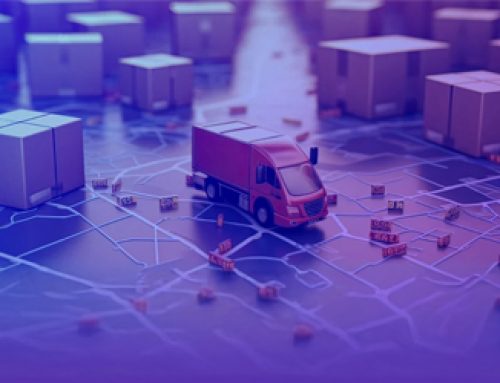4 Agriculture ERP Trends that are Transforming the Agri Sector
Today’s farms are characterized by the intensive use of technology and large-scale production to meet the food needs of the ever-growing population. Moreover, farms should meet high quality and environmental standards and flexibly adapt to evolving market conditions, in addition to being highly efficient. Therefore, in this complex and turbulent environment, it is critical to keep agri-food business processes in control.
These factors impose high requirements on farm management information systems such as Enterprise Resource Planning (ERP) systems, especially regarding flexibility, integration, and incorporation of both human and artificial intelligence for well-informed decision-making. ERP in agriculture is emerging as a potentially effective solution to mitigate these hassles and boost the farm management potential of agribusinesses. It also provides smart technology offerings to improve the productivity and profitability of agribusinesses.
4 ERP Trends that are Ruling the Agriculture Industry
To ensure the effectiveness of farming processes and their results, a wide range of information must be continuously captured, analysed, and communicated. ERP in agriculture supports the process of gathering and assessing agricultural information at different levels from operational to strategic – including automated cultivation and logistic systems, smart management systems, and business intelligence applications. Here are the top agriculture ERP trends that are encouraging the progress of the agricultural sector.
- Super-efficient Production Management
For processes like planning and production, the agriculture ERP platform gives functional efficiency. If multiple farms are in play, coordination between the supply chain, seasons, and scheduling of equipment and farmers is critical for agriculture efficiency. To handle these tasks, the right agriculture ERP software helps manage and gives visibility to the types of crops planted, planting and sowing data, production forecasts, and cost capture information.
ERP in agriculture also tracks farming-associated inventories such as seeds, fertilizers, pesticides, etc. This allows farmers to direct their focus toward increased and efficient production rather than just concentrating on the supplies they need. Agriculture ERP software can further track crop locations, which aids in monitoring and managing the application of different types of fertilizers and pesticides in different areas. Apart from streamlining the watering process for efficient crop production, ERP collects various data to forecast future production capabilities.
- Use of Cutting-edge Agriculture Tech and Equipment
Agriculture has recently become much easier as advanced equipment such as tractors and harvesters have substituted manual labour and workhorses. Such equipment is armed with various intelligent sensors and data collection systems. These systems feed information to agriculture ERP software to gain insights into how the machinery is used. The useful data include operational hours, operating personnel information, distance traveled, current location, and machinery amortization information.
Intelligent automation technologies such as machine learning, artificial intelligence, robotic process automation, and drones are providing much-needed solutions to modern agricultural problems. Based upon the collection of data through these technologies, agriculture ERP software can assess weather conditions and make accurate predictions to ensure success in agribusiness. This software also facilities the allocation of resources, thus reducing waste and enabling sustainable farming. Moreover, the use of satellite imagery analysis to rapidly identify and detect pest attacks, crop diseases, and nutrient deficiencies is one of the latest trends of ERP in agriculture.
- Advanced Analytic Features and Capabilities
Agricultural ERP systems can greatly enhance the ability to communicate in multiple ways. ERP systems have promising connectivity features that allow the system to connect to smart devices and equipment such as IoT sensors, drones, and agribots to automate processes. It is also used to notify tractors and other machinery to make requisite adjustments during ploughing, fertilizing, and planting when going through different fertile zones.
Analytical information is essential in most industries to enhance processes and quality, and the agriculture sector is not an exception. With improved farm analytics and a wealth of insights into agricultural activities, ERP can provide users with customized reports and dashboards to make advanced decisions and increase their bottom line. Exact evaluation of needs and efficient allocation of resources not only cut down maintenance costs but also aid in yield predictions.
- Streamlined Supply Chain Management
For many agribusinesses, commodity prices have always remained a challenge. Significant changes in trade policies and tariffs and geopolitical conflicts continue to affect agricultural businesses, creating uncertain conditions. ERP in agriculture thus relies on technologies such as IoT and blockchain to collect data that can be leveraged to create new revenue opportunities and relieve pricing pressure.
Supply chain management is also a key feature of the agriculture ERP platform, right from planting and harvesting to distribution and warehousing. It tracks all steps of farming operations to create reliable supply chains and improve the revenue flow of a farmer. Moreover, improved supply chain management helps farmers forecast supply and demand, prepare accordingly, and optimize processes to minimize bottlenecks.
The main idea of implementing ERP in agriculture is to reduce manual labour and paperwork while enabling a farmer’s business continuity in a highly competitive environment. It also helps address challenges associated with production and profit efficiencies.
FarmERP offers a smart agriculture ERP software designed to solve many existing challenges, mitigate risks, and increase ROI and cost savings for agribusinesses Contact us to know how our agriculture ERP system can help your agribusiness.



